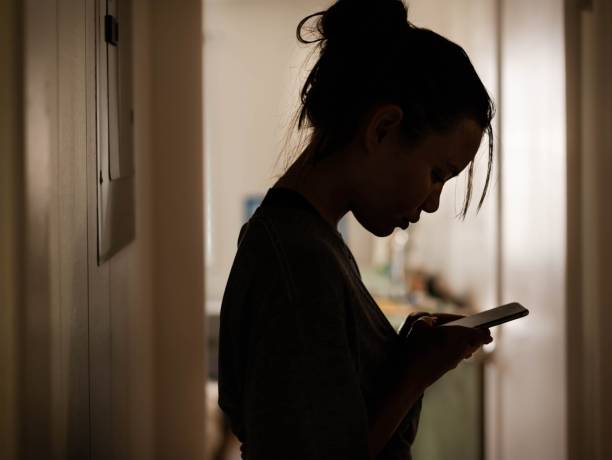It starts with a buzz. A ping. A soft vibration against your palm.
A few seconds later, you’re gone—mentally transported. You’re no longer in your kitchen, on your bus ride, or sitting next to your child. You’re scrolling through someone else’s honeymoon. Laughing at a stranger’s skit. Raging over a headline. Wondering, without realizing it, if your own life measures up.
And just like that, you’ve left the present moment and entered the algorithm.
Social media has become the air we breathe, the background hum of our consciousness. We check it between tasks, during meals, in the bathroom, even during conversations. What began as a tool to connect us has become something far more powerful—and far more insidious.
It’s not just changing what we see. It’s changing how we see, what we think, and who we believe we are.
Social media isn’t just reflecting our minds. It’s rewiring them.
And it’s doing so in ways we don’t even notice.
The Hijacking of Attention
Your attention is the most valuable currency in the digital world. Every app, notification, and feed is designed to capture and hold it for as long as possible. You’re not the customer—you’re the product. Your time, your focus, your emotional responses—they’re being mined, measured, and monetized.
The result is a form of digital colonization. Your cognitive space is no longer your own.
Social media platforms are engineered with behavioral psychology tricks straight from the gambling world: variable rewards, infinite scrolls, unpredictable notifications. Each time you swipe down and see something new, your brain gets a hit of dopamine—a pleasure chemical that fuels addiction.
Over time, the brain learns to crave the scroll. And when it’s taken away, we feel anxious, bored, even lost.
But the cost isn’t just wasted hours. It’s our ability to sustain focus, be present, and listen deeply.
We are raising generations who find silence uncomfortable, who reach for their phones the moment stillness appears. Our minds, once able to sink into deep thought, are now fractured by the constant ping of distraction.
And the scariest part? We don’t notice the change. Because we’re too busy checking notifications.
The Cultivation of Comparison
You open Instagram, and it’s instant: the photos of glowing skin, picture-perfect homes, curated vacations, couples in love, bodies sculpted to perfection. It doesn’t matter how well you understand filters and lighting tricks—your nervous system responds as if it’s real.
Comparison isn’t just a passing feeling online. It’s chronic. It’s cumulative. And it’s quietly corrosive.
Social media creates a psychological illusion called highlight reel syndrome. You compare your messy, complex, behind-the-scenes life with the airbrushed public moments of others. And even if you know better, part of you still feels inadequate.
This is especially toxic for adolescents, whose sense of self is still forming. They learn to judge their worth by likes, follows, comments, and engagement. The line between online identity and self-esteem begins to blur. Validation becomes digital. Rejection becomes public.
Over time, we internalize the algorithm’s values: popularity over authenticity, aesthetics over honesty, performance over presence.
We curate ourselves for approval, and in the process, begin to forget who we actually are.
The Rise of Virtual Identities
Online, we can be anyone. That’s the beauty—and the danger.
Social media gives us the power to craft identities. We choose our photos, our bios, our tone. We edit our lives like movies, cutting out the awkward silences, the failures, the boredom. And slowly, subtly, we fall in love with the version of ourselves that gets the most praise.
But maintaining a digital self-image is exhausting. It creates a split between the inner and outer self. You may feel pressure to be funny when you’re sad, to appear strong when you’re falling apart, to stay relevant when you just want to rest.
This disconnect can lead to a kind of identity vertigo—a disorientation where we don’t know which version of us is real.
And when your digital life becomes more fulfilling than your physical one, the consequences can be quietly devastating. Loneliness increases. Social anxiety grows. Emotional intimacy becomes harder.
We crave connection but fear vulnerability. We talk more but feel less understood.
And the tragedy is: we’re surrounded by people—but we’re still alone.
The Weaponization of Outrage
Social media thrives on emotion. But not just any emotion. The kind that spreads fastest, holds attention longest, and sparks the strongest reactions: outrage.
Anger gets clicks. Fear gets shares. Controversy keeps us scrolling.
The algorithm rewards conflict. It promotes content that divides, provokes, and polarizes. This means that the most extreme voices rise to the top, while nuance and empathy get buried.
We are becoming addicted to outrage. It gives us a temporary high—a rush of moral superiority, the thrill of being “right.” But over time, it erodes our ability to listen, to think critically, to see the humanity in those we disagree with.
We stop being curious. We start being combative.
And this constant exposure to anger isn’t just emotional—it’s neurological. Our brains adapt. We begin to see the world through a lens of threat, danger, and mistrust.
We think we’re informed. But we’re really just inflamed.
The Fragmentation of Truth
In the past, truth had gatekeepers—editors, fact-checkers, journalists. Today, everyone with a smartphone is a broadcaster. While this democratization of information has power, it also comes at a cost: the collapse of shared reality.
Social media is a breeding ground for misinformation. Fake news spreads faster than real news. Conspiracies find community. Lies are repeated until they feel true.
And our brains, designed to prioritize repetition and emotion, struggle to keep up.
We live in an age of information overload and meaning scarcity. There’s too much to process, so we rely on shortcuts—emotions, group loyalty, confirmation bias.
Truth becomes fragmented. What’s true for one group is fake news to another. Public discourse collapses into echo chambers. Dialogue becomes shouting.
And somewhere in the noise, reality gets lost.
The Slow Death of Boredom—and Imagination
Before smartphones, boredom was a part of life. You waited in line. You stared out windows. You daydreamed. And in that stillness, imagination bloomed. Creativity was born. New ideas emerged.
But now, boredom is the enemy. The moment stillness appears, we scroll. We check. We click.
Our brains, once allowed to wander, are now constantly occupied. And without boredom, we lose something essential: the capacity to think creatively, problem-solve, and sit with ourselves.
We mistake distraction for stimulation. But in truth, our minds are being numbed.
Children growing up in this world struggle to entertain themselves without screens. Adults find it difficult to be alone with their thoughts. Our attention spans are shrinking. Our tolerance for stillness is dying.
And in this constant noise, we lose access to the deeper parts of ourselves.
The Rewiring of Relationships
Social media promised connection. But often, it delivers performance.
Likes, comments, tags, DMs—they simulate intimacy, but they don’t replace it. We feel seen, but not truly known. We maintain dozens of shallow connections at the expense of a few deep ones.
Even romantic relationships are affected. Studies show that couples who frequently post about their love lives are often compensating for insecurity. The boundary between public and private becomes blurred. Moments are captured, not lived.
And friendships suffer too. Instead of reaching out personally, we “react” to stories. Instead of catching up, we scroll through updates. We confuse visibility for closeness.
Over time, relationships become more fragile. Misunderstandings happen more easily. Conflicts are avoided or made public. Empathy decreases. Jealousy increases.
We are connected—but not always in ways that nourish.
The Mind’s Mirror: How Social Media Shapes the Self
Every time you open your feed, you are being told what matters.
What’s beautiful. What’s successful. What’s worth your attention. These messages don’t just inform you—they mold you. Over time, they become the standards by which you judge yourself.
This is called internalized idealism—when the values of the digital world become the values of the self.
You start wanting things you never cared about. You begin to believe your worth depends on your productivity, appearance, or follower count. You start to feel behind, not because you are, but because the algorithm keeps showing you people ahead.
And slowly, silently, your inner world is shaped by outer forces you don’t control.
You think you’re choosing what to believe.
But in truth, you’re being programmed.
The Algorithm Knows You Better Than You Do
Every click you make is data. Every pause, every like, every comment. Over time, these platforms build a psychological profile of you—what you desire, fear, believe, and buy.
The algorithm doesn’t just track your behavior. It predicts it. And soon, it begins to shape it.
It nudges you toward certain content. Suggests what to watch next. Decides what you see and what you don’t.
And because the algorithm feeds you more of what you engage with, it can create a feedback loop that narrows your worldview. You see more of what confirms your beliefs, and less of what challenges them. You think you’re exploring freely—but your journey is being curated.
And the more time you spend online, the more your digital self becomes your dominant self.
You are being subtly, continuously nudged—by a machine that doesn’t care about your soul.
The Possibility of Conscious Use
Despite all this, social media is not inherently evil. It’s a tool. And like any tool, its power depends on how we use it—and how consciously we engage with it.
Social media can uplift. Educate. Mobilize. Heal.
It has connected people across the world. Given voice to the voiceless. Shown injustice. Sparked revolutions. Saved lives.
But only when we use it with awareness.
We must reclaim our attention. We must question what we consume. We must pause before we post. We must remember that behind every profile is a person.
The goal is not to abandon the digital world—but to inhabit it without losing our humanity.
Coming Back to Ourselves
In the end, the most important screen is not your phone—it’s the one in your mind.
What do you see when you look inward?
Do you know yourself beyond the likes, the filters, the metrics? Can you be alone with your thoughts? Can you feel something without needing to share it?
Can you live a moment fully—and let it pass without proof?
Social media has rewired our minds. But we are not powerless.
We can retrain our focus. Restore our attention. Reclaim our imagination. Reconnect our relationships. Reinforce our sense of self.
We can remember who we were before we needed to be seen to feel real.
Because beneath the scroll, the feed, the filter—there is still a mind that longs to think.
And a heart that longs to feel.






